The Hard Way

Brief Synopsis
Cast & Crew
Vincent Sherman
Ida Lupino
Dennis Morgan
Joan Leslie
Jack Carson
Gladys George
Film Details
Technical Specs

Synopsis
When the police question a woman they have pulled from a river after a suicide attempt, she admits that her name is Helen Chernen, but does not explain why she wants to kill herself. As she lays dying, however, she recalls the events that led her from the industrial town of Greenhill to this desperate moment: After their mother dies, Helen rears her younger sister, Katherine Blaine. When Helen's husband Sam refuses to buy Katie a special dress for her high school graduation, Helen vows to give her sister a better life. One evening, Katie attends a vaudeville performance with Johnny Gilpin and is enthralled by the performance of song-and-dance team Paul Collins and Albert Runkel. Later, at a soda fountain, Katie announces her intention to become an actress and does an imitation of Collins and Runkel. Unknown to Katie, Paul and Albert enter the soda fountain and see her performance. Albert is charmed by Katie and invites her to dance on the theater stage. When Albert drops Katie at home late that night, an irate Helen orders him to leave her sister alone. Later, however, Helen changes her mind and encourages Albert's interest, and shortly, he marries Katie. When Katie, Albert and Paul leave town, Helen goes with them. Helen works unceasingly to increase Katie's part in the act and eventually forces Paul to leave. After a while, Katie is offered a part in a revue without Albert. At first she refuses to go without him, but finally accepts at his insistence. Paul tells Helen that he has developed a kind of admiration for her cold ambition and then makes a pass, but when she responds, he dismisses her. Albert and Paul now resume their old act and Katie moves from the chorus to a starring role in the revue thanks to Helen's manipulation. On opening night, Katie is such a success that famous playwright Laura Bithorn resolves to write a play for her. When Albert calls to congratulate her, Helen forces her to hang up. Paul then advises Albert to go to New York immediately, but when Albert arrives at a party in Katie's honor and begs her to return to him, she quarrels with him, and he leaves despondent. While Katie becomes more famous, Albert's act fails. After a theater owner suggests that Albert capitalize on his relationship to Katie, he kills himself. Albert's death affects Katie on a deep level, and she starts drinking heavily, until finally, her producer decides to find another actress for Laura's play. Determined not to let this happen, Helen decides to produce the play herself. She and Katie join Laura for drinks and encounter Paul in the bar. While Helen discusses business with Laura, Katie joins Paul, who is now leading a popular band. Later, Katie visits Paul at the resort where he is working. They spend the next three weeks together, and Paul proposes marriage. Helen arrives at the resort, unaware that Paul is also there, and when she learns that they plan to get married, she is deeply unhappy. She points out that she has invested all her money in the play, and even though Paul insists that Katie break away from Helen before she is destroyed, Katie refuses to walk out on her sister, and Paul breaks their engagement. On opening night, Paul comes to see Katie, but Helen sends him away. When Katie learns this, she runs after him, but cannot find him. She then accuses Helen of wanting Paul for herself, and is so upset that she breaks down on stage. Later, she tells Helen that she never wants to see her again and rejoins Paul. Helen is left totally alone and broke. Back at the river, Helen dies without answering the policeman's question.

Director

Vincent Sherman
Cast

Ida Lupino

Dennis Morgan
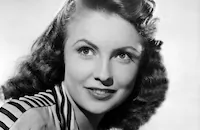
Joan Leslie

Jack Carson
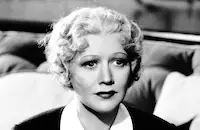
Gladys George
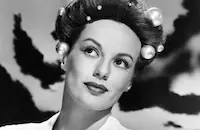
Faye Emerson

Paul Cavanagh

Leona Maricle

Roman Bohnen
Ray Montgomery

Julie Bishop

Nestor Paiva

Joan Woodbury

Ann Doran
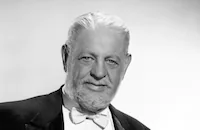
Thurston Hall
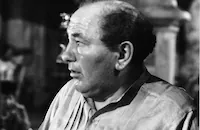
Charles Judels
Lou Lubin
Jody Gilbert
Emory Parnell
Eddy Chandler
Edgar Dearing
Bill Edwards
Wallace Scott
C. Harry Clark
Lew Harvey
Jean Ames
Harry Lewis

Dolores Moran

Juanita Stark
Beth Drake
Jimmy Butler
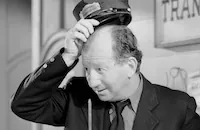
Hank Mann
Mary Curtis

Billy Curtis
Bill Kennedy
Fred Kelsey
Virginia Brissac
Eddie Coke
Frank Mayo
Philip Van Zandt

Edward Mcwade
Tom Stevenson
Peggy Diggins
Libby Taylor
Murray Alper
Georges Renavent
Frank Faylen
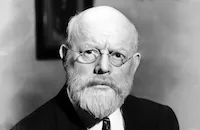
Howard Mitchell
Joel Davis
Bill Hopper
David Willock
Bud Mccallister
Eddie Craven
Roland Drew
Wilbur Mack
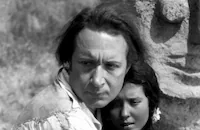
Monte Blue
Vera Lewis
William Forrest
Jean Inness
Marian Hall
Sam Garrett
Jack Kennedy

Ed Kane
Stacy Keach
Ed Hart
Victor Zimmerman
Frances Morris
Merrilee Lannon
Dick French
Sue Moore
James Metcalf
Crew
Elmer Decker
Leo F. Forbstein
Daniel Fuchs
Ray Heindorf
James Wong Howe
M. K. Jerome
Stanley Jones
Orry-kelly
Max Parker
Thomas Pratt
Leroy Prinz
H. Roemheld
Jack Scholl
Don Siegel
Walter F. Tilford
Willard Van Enger
Peter Viertel
Jerry Wald
Jerry Wald
Jack L. Warner
Perc Westmore
Harold Winston

Videos
Movie Clip



Trailer
Hosted Intro
Film Details
Technical Specs

Articles
The Hard Way
Bette Davis had been the original choice for the role of Helen Chernen but turned it down. This might be why Ida Lupino once called herself "the poor man's Bette Davis." She would often get offered the roles Bette rejected and in the case of The Hard Way, it worked to Ida's advantage. But at first, she didn't want to do The Hard Way either and even during production was convinced audiences would despise her performance, telling Sherman, "This picture is going to stink and I'm going to stink in it!"
Sherman also had to contend with Irwin Shaw, who had written the original story and had strong opinions about who should direct it, like William Wyler, Howard Hawks, or Leo McCarey. Additional pressure was applied by studio head Jack Warner who was convinced that audiences didn't want to see a film about "dirty people in the coal mines." To pacify Warner, Sherman eventually added an upbeat prologue and epilogue that cleverly frames the powerful drama without compromising the material.
In his excellent autobiography, Studio Affairs, Sherman wrote, "Looking back, I think The Hard Way was probably the most personal expression of all the films I worked on. It said things about the human condition that are still close to me: that drive for success in our culture that causes us to do things that we might later regret - sometimes too late. I am also proud of Ida Lupino's performance." Although Lupino should have been nominated for a Best Actress Oscar for her work in The Hard Way, she was awarded the Best Actress Award by the New York Film Critics.
Director: Vincent Sherman
Producer: Jerry Wald, Jack L. Warner (executive)
Screenplay: Daniel Fuchs, Peter Viertel
Cinematography: James Wong Howe
Editor: Thomas Pratt
Music: M. K. Jerome (songs), Heinz Roemheld, Max Scholl (songs)
Cast: Ida Lupino (Helen Chernen), Joan Leslie (Katherine Chernen Blaine Runkel), Dennis Morgan (Paul Collins), Jack Carson (Albert Runkel), Gladys George (Lily Emery).
BW-110m. Closed captioning. Descriptive video.
by Jeff Stafford

The Hard Way
Quotes
Trivia
Several actors with their character names listed in studio records and/or casting call lists were not seen in the movie. These were Eddie Coke (Variety Ad Taker), Frank Faylen (Policeman), Howard Mitchell (Policeman), Joel Davis (Jimmy, Six Years), Wilbur Mack (Stage Manager, Monte Blue (Assistant Stage Manager), Frances Morris (Telephone Operator) and Merrillee Lannon (Western Union Clerk).
Notes
A February 1942 press release announced that Olivia De Havilland, John Garfield and Jeffrey Lynn would star in the film. SAB ascribes the screenplay credit to Irwin Shaw and Daniel Fuchs, and lists Peter Viertel only as a contributor to screenplay construction. According to a May 15, 1977 letter from Fuchs, who received an onscreen screenwriting credit with Viertel, however, the SAB listing is incorrect. The letter confirms the credits as given onscreen. Ida Lupino won the New York Film Critics Award for Best Actress of 1943 for her performance in the film. A radio version of this film was broadcast by Lux Radio Theatre on March 20, 1943, and starred Miriam Hopkins and Franchot Tone.

















